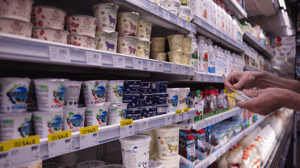Online Grocery Shopping Forecast to Grow 9.5% AnnuallyOnline Grocery Shopping Forecast to Grow 9.5% Annually
SANTA MONICA, Calif. — Growing at an annual rate of 9.5%, online grocery shopping is forecast to reach $9.4 billion in 2017, according to new research published by market research firm IBISWorld.
October 5, 2012
SANTA MONICA, Calif. — Growing at an annual rate of 9.5%, online grocery shopping is forecast to reach $9.4 billion in 2017, according to new research published by market research firm IBISWorld.
The bright future ahead for online grocery shopping is borne of a combination of the recovery of consumers’ disposable income and widened Internet access, IBIS World researchers report.
Indeed, the report stresses that online grocery shopping, in definite growth stage, is outpacing the country’s general economic growth, with the U.S. GDP growing at 1.8% on average.
“As the unemployment rate declines, so will consumers’ free time, making Internet food shopping more attractive in the next five years,” said Savannah Haspel, IBISWorld spokesperson, in a statement at the time of the research report’s release this week.
The company’s forecast is based on data from grocers who via online channels only as well as well as those that have a physical presence and also sell groceries online.
Read more: Alice in Wonderland: CPG Commerce Grows Online
The expansion of broadband Internet plus the increase in mobile Internet connections play major roles in the growth forecast. The number of online grocery-selling participants also is expected to grow in the next five years.
The Hartman Group, Bellevue, Wash., is closely following the growth of the online shopping business as well. In a recent newsletter, Hartman researchers, referring to online grocery shopping, pointed out that “various sources forecast online purchases of packaged goods to grow from $12 billion today to $25 billion by 2014. And the Hartman Group is set to begin work on its own report titled, “The Online Grocery Shopper.”
At present, retail grocery is lagging behind other channels in online grocery sales, according to Hartman research published earlier this year. That Hartman study, “Shopping Topography: Mapping the New Consumer Pathways to Purchase,” shows these percentages of “consumers shopping online across various channels for similar products they now purchase in-store”: club channel, 41%; drug , 22%; mass and drug, 17%; and grocery, 14%.
You May Also Like






